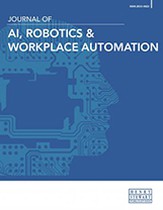Developing a conceptual framework for identifying the ethical repercussions of artificial intelligence: A mixed method analysis
Abstract
Given that the topic of artificial intelligence (AI) ethics is novel, and many studies are emerging to uncover AI’s ethical challenges, the current study aims to analyse and visualise the research patterns and influential elements in this field. This paper analyses 1,646 Scopus-indexed publications using bibliometric analysis and cluster content analysis. To classify the most prominent elements and delineate the intellectual framework as well as the emerging patterns and gaps, we utilised keyword co-occurrence analysis and bibliographic coupling analysis and network visualisation of authors, countries, sources, documents and institutions. In particular, we detected nine major applications of AI in which ethics of AI is highly discussed, 24 ethical categories and 66 ethical concerns. Using the VOSviewer software, we also identified the general ethical concerns with the greatest total link strength regardless of their cluster associations. Then, focusing on the most recent articles (2020–21), we performed a cluster content analysis of the identified topic clusters and ethical concerns. This analysis guided us in detecting literature gaps and prospective topics and in developing a conceptual framework to illustrate a comprehensive image of ethical AI research trends. This study will assist policymakers, regulators, developers, engineers and researchers in better understanding AI’s ethical challenges and identifying the most pressing concerns that need to be tackled.
The full article is available to subscribers to the journal.
Author's Biography
Tahereh Saheb received a doctorate in science and technology studies from Rensselear Polytechnic Institute. She is currently an assistant professor at Tarbiat Modares University’s Management Studies Center. Her research areas of interest include artificial intelligence (AI) ethics and digital health. She has published a number of articles on this subject in prestigious journals.
Sudha Jamthe is a globally recognised technology futurist with a 20+ year mix of entrepreneurial, academic and operational experience in the technology industry. She brings focused research on the business of data with a futuristic lens on value creation from data, and ethical human-centred design of artificial intelligence (AI). Sudha is the author of six books and teaches Internet of Things (IoT), AI and autonomous vehicles business courses at Stanford Continuing Studies and at BusinessSchoolofAI.com. Sudha teaches AI ethics courses to three Master’s programmes at Barcelona Technology School. She serves as the chair of the strategic advisory board for Barcelona Technology School and as an ambassador for FundingBox Impact Connected Cars (Europe H2020) Community and NGI. Sudha has an MBA from Boston University and BS in computer science engineering from Madras University.
Tayebeh Saheb is the Dean of Tarbiat Modares University’s law faculty. Her study focuses on the legal and ethical issues of artificial intelligence (AI) and intellectual property. She has substantial experience working on policy and advisory boards. She has published various articles on the ethics of medical AI in prestigious journals.
